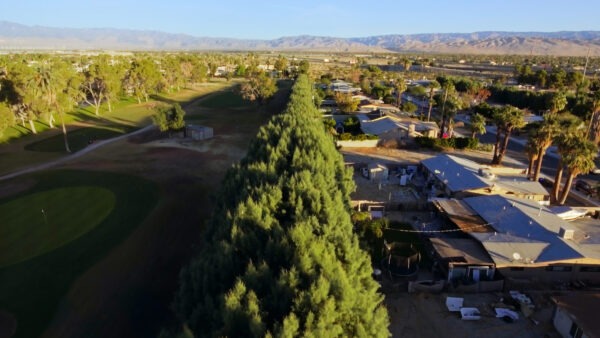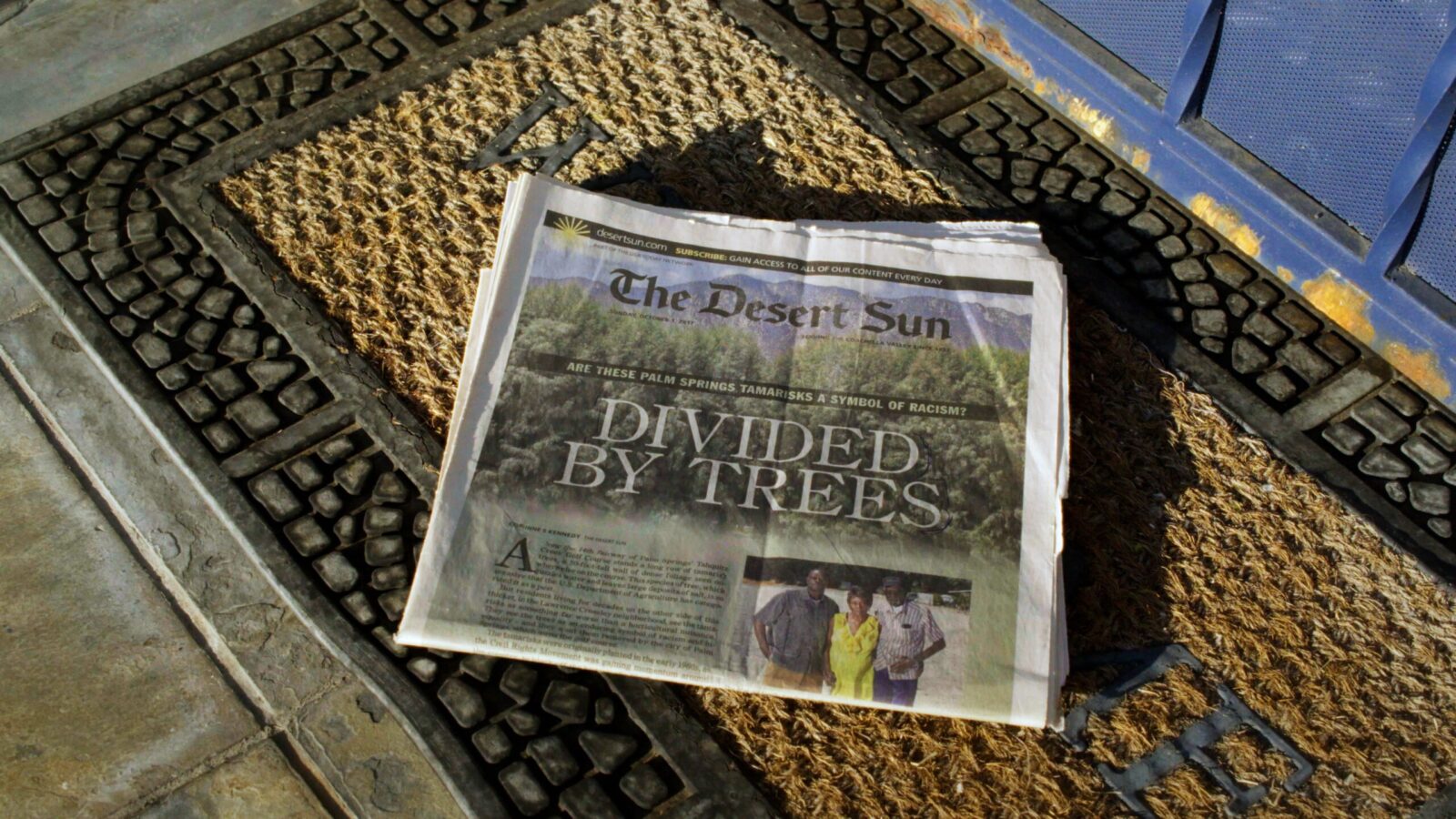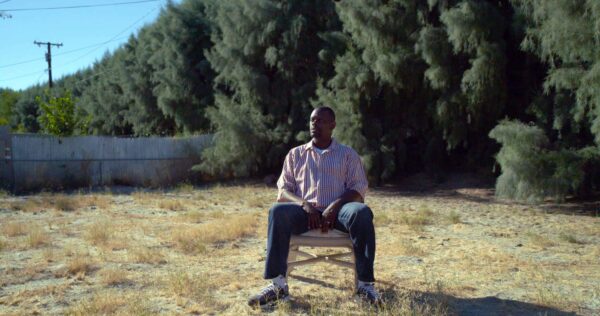
When we think of Palm Springs in California we have an image of a gay mecca that has developed a strong reputation as an LGBT-friendly destination. and is also a cheaper alternative to San Francisco or New York. Since the 1980s/90s many LGBT people chose the desert city as a base for their elderly years, and in fact, now around 50% of the residents of Palm Springs over 55 identify as LGBT.
 It, therefore, comes as something of a surprise to discover that behind part of this sunny facade there is a history of racial tensions which is about to explode. It’s all being stirred up (again?) as a historically Black neighborhood is now fighting to remove a wall of trees that form a barrier believed to segregate the community.
It, therefore, comes as something of a surprise to discover that behind part of this sunny facade there is a history of racial tensions which is about to explode. It’s all being stirred up (again?) as a historically Black neighborhood is now fighting to remove a wall of trees that form a barrier believed to segregate the community.
The historically Black neighborhood of Crossley Tract sits inside a small corner of an affluent part of the city. Since the 1950s they have been separated by towering 60-foot Tamarisk trees, which are a point of frustration and animosity for residents who regard them as an enduring symbol of racism. Residents believe the trees were intentionally planted to exclude and segregate the neighborhood.
In making a PBS documentary about the struggle behind the trees removal it reignited the history of racial tension in the city. Much of Palm Springs inhabits Indigenous land, and the Agua Caliente tribe rented land to Black and Latino families who were discriminated against elsewhere in the city. After the land gained value, residents were forcibly displaced throughout the 1950s and ‘60s as the local government set fire to homes without providing a place to relocate. Many families had no choice but to take up residence just outside city limits or leave town altogether. A few families found refuge in Crossley Tract.
Some locals today oppose the tree removal, denying any racial animus. When the conflict makes headlines, a firestorm of local politics and international media puts into question the progressive reputation of Palm Springs.
“Racist Trees” by Sara Newens and Mina T. Sonwill debut on PBS’s INDEPENDENT LENS on January 22, 2024, at 10 p.m. (check local listings). The film will also be available to stream on the PBS App.


